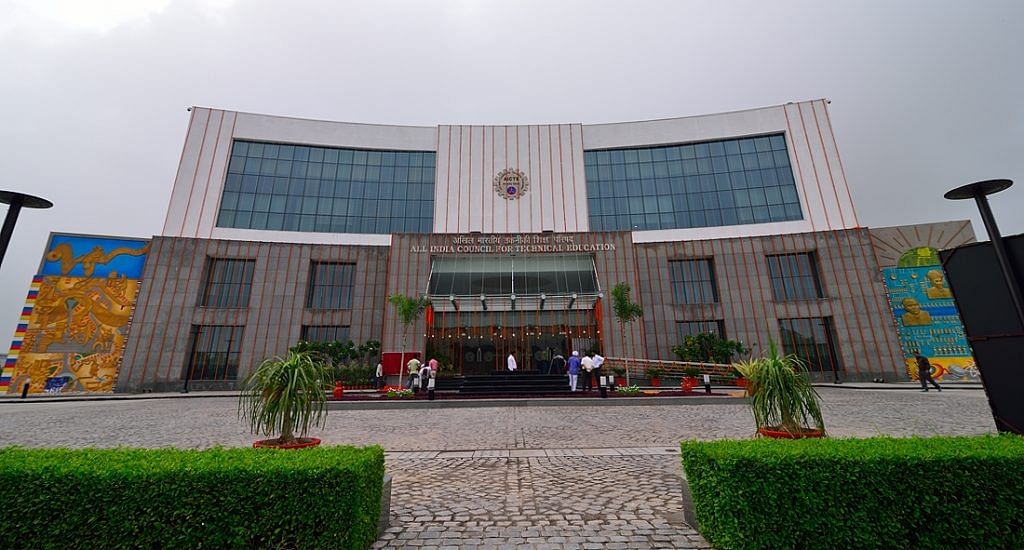AICTE to introduce optional course in engineering colleges which credits ancient Indians for a number of inventions.
New Delhi: A number of controversial claims on scientific discoveries, endorsed by the RSS and members of the Narendra Modi government, are set to be taught in engineering classrooms across the country.
The Human Resource Development (HRD) Ministry has decided to introduce into the country’s engineering curriculum, a book that makes a number of these claims — from discrediting the Wright brothers, claiming that batteries and electricity existed in the Vedic age, to asserting that ancient Indian scientists knew about gravitational forces much before Isaac Newton.
The book, Bharatiya Vidya Saar, will be offered as part of an optional credit course in engineering institutions affiliated to the All India Council for Technical Education (AICTE). It is the brainchild of the faculty at the Bharatiya Vidya Bhawan, an education trust.
The optional credit course, ‘Indian Knowledge Systems’, will be part of a revised syllabus from the next academic session. It focuses on Indian philosophical, linguistic and artistic traditions, along with yoga and Indian perspective of modern scientific worldview.
“The idea is to make students aware of ancient scientific knowledge, which is why this curriculum has been developed,” said a professor who has worked on the curriculum and who did not want to be named.
“For ages now, we have been learning how the British invented things because they ruled us for hundreds of years and wanted us to learn what they felt like. It is now high time to change those things and we hope to do that with this course.”
Also read: To make Indian engineers more employable, govt plans to train teachers
A book of the Vedas
The book, a copy of which is with ThePrint, not only details “India’s contribution to scientific discoveries” but also weighs in on the “importance of the four Vedas” — Rig, Sam, Atharva and Yajur — and on the “importance of Indian culture”.
It credits ancient Indians with being the pioneers of electricity production, inventing batteries, aeronautics, maritime engineering and the discovery of the phenomenon of gravity.
To put forth the “facts”, the book has divided its topics into a “Myth” vs “Reality” section.
For instance, under the section “Aeronautics”, the content under “Myth” reads, “It is believed that aeronautics was developed by Wright Brothers in 1903″.
The “Truth” seeks to dispel this. “In Vedic age, Maharshi Bhardwaj wrote an epic called Yantra Sarvasva and aeronautics is a part of the epic. This was 5,000 years before Wright brothers’ invention of the plane,” it reads.
“Yantra Sarvasva is not available now but out of whatever we know about it, we can believe that planes were a reality in Vedic age. This should be mentioned in the technical studies curriculum in India,” it adds.
The book also aims to “bust the myth” on the discovery of electricity and invention of batteries. “Credit for the invention of batteries is given to British scientist Frederik Daniel (sic) and that of electricity to Benjamin Franklin, but Maharishi Agastya in Agastya Sanhita talks about it much before these scientists.”
On gravity, the book claims, “It’s a Myth that Theory of Gravity was discovered by Isaac Newton in 1666 AD; the truth is that thousands of years before Newton, a number of epics were written on the gravitational force and we can find the evidence in the Rig Veda.”
Also read: 17.68 lakh seats lay vacant last year but govt may approve 800 new tech institutes in 2018
AICTE has defended its decision to introduce the Indian Knowledge Systems course.
“This change should not be seen in isolation. Indian Knowledge Systems is being introduced as a part of the revised curriculum for engineering students,” said AICTE chairman Anil Sahasrabuddhe.
“The other changes include teaching students about artificial intelligence, internet of things, machine learning, robotics and others. The idea is to introduce more of practical and less of theory in the revised syllabus.”
A ministry official added, “Over 80 per cent of the 3,000 colleges that come under AICTE have agreed to adopt the model syllabus.”
A number of claims
The Modi government has been accused of promoting pseudoscience propagated by Hindu groups, with a number of its members, including the prime minister himself, making some dubious scientific claims.
Junior HRD minister Satyapal Singh, for instance, is a major backer of the claim that the Wright brothers were beaten to the invention of the aeroplane. Only, Singh claims, that “the first flying machine was invented by Indian scholar Shivkar Bapuji Talpade”. He has also gone on record to say that Charles Darwin’s Theory of Evolution is wrong.
Rajasthan education minister Vasudev Devnani is among those who believe that seventh-century Indian astronomer Brahmagupta II formulated the laws of gravitation, at least 1,000 years before Isaac Newton. He had earlier claimed that the cow was the only animal to inhale and exhale oxygen.
